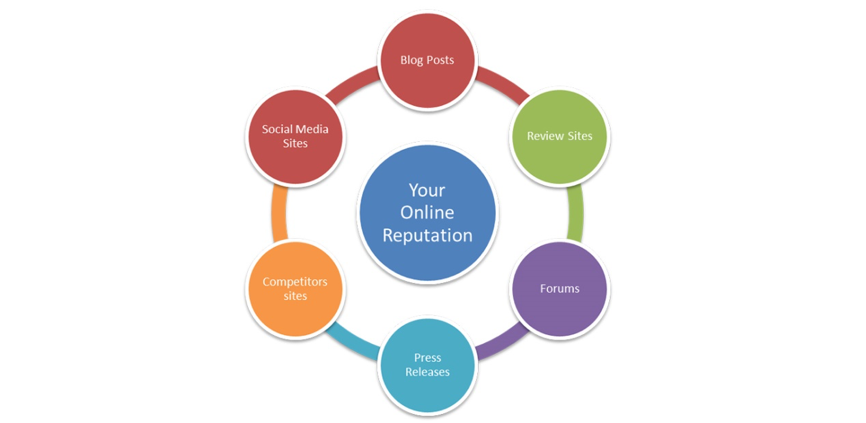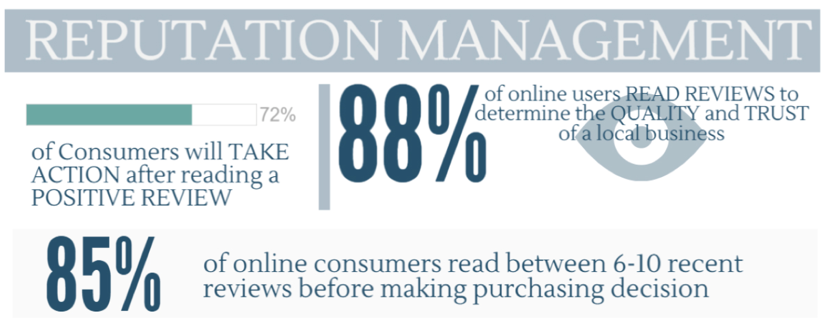Customers are talking about your brand. Through avenues such as social media, online review sites, blog comments, and community forums, your brand has made an impression…and it’s up to you whether that impression is a positive or negative one.
Because of the plethora of social media choices in play, it can be very difficult to monitor the conversations and truly know what’s being said about your brand every minute of the day. Because of this, more companies are investing in online reputation management (ORM).
ORM is the act of monitoring and engaging in activities to understand and improve the overall public impression a company has online. In other words, it’s public relations for the internet.
It’s best to stay abreast of what’s being said about your brand, otherwise you will be playing a game of clean up. When it comes to your business’s online reputation, the “fix it later” approach can result in disaster. Hersh Davis-Nitzberg, founder and CEO of crisis management firm Reputation Control Inc., says that entrepreneurs need to be proactive about managing their online reputation before irreversible damage is done. Here are four steps he recommends you take to protect and improve your business.
1) Be Present…Especially where your Customers are
The number one danger to ORM is when companies are not present where their customers are interacting. Social media is only one avenue where your customers are talking about you online. Your customers are not only tweeting or posting on Instagram about you, but they are also gaining support praising or pummeling you on community forums, or the comment section of review sites.
Unfortunately, on most of these forums, the customer inquiries, concerns, or complaints go unseen and unanswered by a representative of the business. Instead, the forums become support groups for customers as other users share similar questions or poor experiences that they have encountered with in your brand. You definitely do not want this to become a free-for-all bashing your brand.
2) Responding to Negative Content
In most cases, online forums, communities, or review sites allow companies to respond to feedback. When your company or brand receives negative feedback, ideally you should respond as an affirmation. Try not to become defensive or downplay the customer’s experience. The first step is to apologize for the experience and take the conversation offline.
Many review sites and service communities rank high on search engine optimization (SEO). If a company is mentioned negatively on these sites, the best plan of action is to give a short response recognizing the issue, apologizing, then taking the conversation offline. Invite the user to send a direct message or an email. If a company chooses to go back and forth with a consumer, each time the page re-publishes with additional content about the company, search engines will push the content. In turn, the ranking of this negative review can improve.
3) Pushing Positive Content
A key aspect of managing a brand’s online reputation is to create positive content that will rank well in search engine result pages. By constantly pushing out new, credible content you can increase awareness online and build up your brand’s reputation. Quality content could include customer testimonials, related articles, product reviews, press releases, or banner ads on relevant pages that link to your company website.
4) It’s Easier to Build a Good Reputation than Fix a Bad One
Hersh Davis-Nitzberg explains, “It’s easy to ignore your online reputation when everything is going well. But when a crisis strikes, suddenly the information about you on the internet can determine how the media, clients, and even your personal relationships will react. Be on top of your digital footprint before a crisis happens. If you lack an online presence or have a negative reputation, a crisis situation can become a top story. But, if you have established an authentic, positive, and robust reputation, the same event can be a blip on the radar. If something happens, take a step back and look at the big picture. There may not necessarily be a quick fix, but with a solid strategy, you can repair your brand. The biggest mistake you can make in a crisis is to respond without thinking. Quick reactions can turn a minor crisis into a disaster.”




